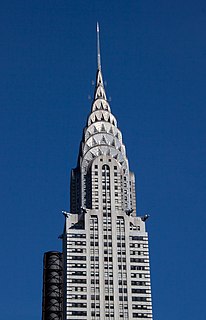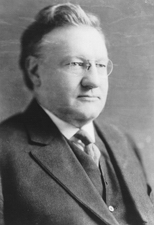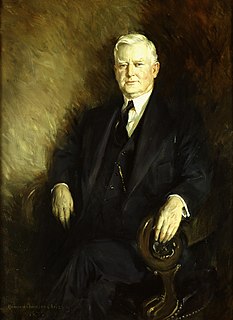| |||||||||||||||||
| |||||||||||||||||
The California gubernatorial election, 1930 was held on November 4, 1930.
| |||||||||||||||||
| |||||||||||||||||
The California gubernatorial election, 1930 was held on November 4, 1930.
| Party | Candidate | Votes | % | ± | |
|---|---|---|---|---|---|
| Republican | James Rolph, Jr. | 999,393 | 72.22 | ||
| Democratic | Milton M. Young | 333,973 | 24.13 | ||
| Socialist | Upton Sinclair | 50,480 | 3.65 | ||
| Total votes | 1,383,846 | 100.0% | |||
| Republican hold | Swing | ||||

Art Deco, sometimes referred to as Deco, is a style of visual arts, architecture and design that first appeared in France just before World War I. Art Deco influenced the design of buildings, furniture, jewelry, fashion, cars, movie theatres, trains, ocean liners, and everyday objects such as radios and vacuum cleaners. It took its name, short for Arts Décoratifs, from the Exposition internationale des arts décoratifs et industriels modernes held in Paris in 1925. It combined modern styles with fine craftsmanship and rich materials. During its heyday, Art Deco represented luxury, glamour, exuberance, and faith in social and technological progress.

The FIFA World Cup, often simply called the World Cup, is an international association football competition contested by the senior men's national teams of the members of the Fédération Internationale de Football Association (FIFA), the sport's global governing body. The championship has been awarded every four years since the inaugural tournament in 1930, except in 1942 and 1946 when it was not held because of the Second World War. The current champion is France, which won its second title at the 2018 tournament in Russia.

Musical film is a film genre in which songs sung by the characters are interwoven into the narrative, sometimes accompanied by dancing.

The 1930s was a decade of the Gregorian calendar that began on January 1, 1930, and ended on December 31, 1939.

The 1930 FIFA World Cup was the inaugural FIFA World Cup, the world championship for men's national association football teams. It took place in Uruguay from 13 to 30 July 1930. FIFA, football's international governing body, selected Uruguay as host nation, as the country would be celebrating the centenary of its first constitution, and the Uruguay national football team had successfully retained their football title at the 1928 Summer Olympics. All matches were played in the Uruguayan capital, Montevideo, the majority at the Estadio Centenario, which was built for the tournament.

A big band is a type of musical ensemble that usually consists of ten or more musicians with four sections: saxophones, trumpets, trombones, and a rhythm section. Big bands originated during the early 1910s and dominated jazz in the early 1940s when swing was most popular. The term "big band" is also used to describe a genre of music. One problem with this usage is that it overlooks the variety of music played by these bands.

Gujarati is an Indo-Aryan language native to the Indian state of Gujarat and spoken predominantly by the Gujarati people. Gujarati is part of the greater Indo-European language family. Gujarati is descended from Old Gujarati. In India, it is the official language in the state of Gujarat, as well as an official language in the union territories of Daman and Diu and Dadra and Nagar Haveli. As of 2011, Gujarati is the 6th most widely spoken language in India by number of native speakers, spoken by 55.5 million speakers which amounts to about 4.5% of the total Indian population. It is the 26th most widely spoken language in the world by number of native speakers as of 2007.

The Salt March, also known as the Dandi March and the Dandi Satyagraha, was an act of nonviolent civil disobedience in colonial India led by Mohandas Karamchand Gandhi to produce salt from the seawater in the coastal village of Dandi, as was the practice of the local populace until British officials introduced taxation on salt production, deemed their sea-salt reclamation activities illegal, and then repeatedly used force to stop it. The 24-day march lasted from 12 March 1930 to 6 April 1930 as a direct action campaign of tax resistance and nonviolent protest against the British salt monopoly. It gained worldwide attention which gave impetus to the Indian independence movement and started the nationwide Civil Disobedience Movement. Mahatma Gandhi started this march with 78 of his trusted volunteers. Walking ten miles a day for 24 days, the march spanned over 240 miles.

The United States Senate elections of 1930 occurred in the middle of Republican President Herbert Hoover's term. With the Great Depression beginning to take hold, Republican incumbents became unpopular, and Democrats picked up a net of eight seats, erasing the Republican gains from the previous election cycle. Republicans retained control of the U.S. Senate since Vice President Charles Curtis cast the tie-breaking vote. This was the first of four consecutive Senate elections in the Depression in which Democrats made enormous gains, achieving a cumulative pick-up of 34 seats.
The 1930 World Series featured the defending champion Philadelphia Athletics and the St. Louis Cardinals. The Athletics defeated the Cardinals in six games, 4–2. Philly's pitching ace Lefty Grove, and George Earnshaw, No. 2 man in Mr. Mack's rotation, won two games apiece. Earnshaw also pitched seven scoreless innings as Game 5 starter, but ended up with a no-decision as Grove relieved him in the eighth and took the win on Jimmie Foxx's two-run homer in the top of the ninth for the game's only scoring.

The 1930 United States House of Representatives elections was an election for the United States House of Representatives in 1930 which occurred in the middle of President Herbert Hoover's term.
The New South Wales Legislative Assembly is elected from 93 single-member electorates called districts.
In January 1930, the U.S. state of New York implemented a major renumbering of its state highways. Many previously existing numbered routes were renumbered or realigned. At the same time, many state highways that were previously unnumbered received designations. Most of the highways numbered in the 100s to 300s were created at this time, with route numbers assigned in clusters based on their general location. Several of these new routes no longer exist, so the pattern of clusters is not fully obeyed today.

The Fifteenth United States Census, conducted by the Census Bureau one month from April 1, 1930, determined the resident population of the United States to be 122,775,046, an increase of 13.7 percent over the 106,021,537 persons enumerated during the 1920 Census.
Varieties of the color green may differ in hue, chroma or lightness, or in two or three of these qualities. Variations in value are also called tints and shades, a tint being a green or other hue mixed with white, a shade being mixed with black. A large selection of these various colors is shown below.

The Great Depression was a severe worldwide economic depression that took place mostly during the 1930s, beginning in the United States. The timing of the Great Depression varied across nations; in most countries it started in 1929 and lasted until the late-1930s. It was the longest, deepest, and most widespread depression of the 20th century. In the 21st century, the Great Depression is commonly used as an example of how intensely the world's economy can decline.
Shades of white are colors that differ only slightly from pure white. Variations of white include what are commonly termed off-white colors, which may be considered part of a neutral color scheme.
| This California elections-related article is a stub. You can help Wikipedia by expanding it. |